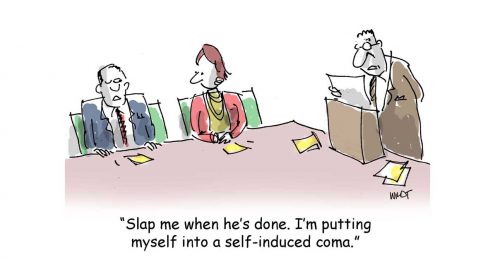If you have watched or read any news since the UK voted to exit the European Union last week, it is very likely these words were mentioned in the coverage:
Uncertainty
Volatility
Instability
Financial markets have dropped sharply. Nobody is quite sure what will happen.
I don’t know about you, but this certainly put me on edge. It made me wonder:
- Will corporations slow down their giving?
- Will individual donors, especially those near or in retirement, be scared to make a gift?
- Will foundation endowments fall again?
Should we just put our heads in the sand and hope for the best?
No! Nonprofit folks are the most resilient, smartest people I know.
We are out there working to solve the words toughest problems. We do not let fear and uncertainty overwhelm us.
But hope is not a strategy.
After the recession of 2008 we all learned a lot about what to do in the face of economic uncertainty and the fact that every member of nonprofit leadership plays an important role in getting through a crisis.
So allow me to suggest three steps to make sure you eat the Brexit for breakfast and not the other way around.
STEP #1: GOOD GOVERNANCE
A nonprofit is only truly successful when boards and senior leadership work together to tackle problems. Good governance policies should always be a top concern, but they take on even greater importance during difficult times.
Challenges are not just the responsibility of the Executive Director, nor is a board able to find solutions to pressing concerns without a strong working relationship with the professional staff.
With that in mind make sure that:
- Before your next board meeting the Executive Director and Board Chair sets aside time to talk about the financial uncertainty that is occurring. Have an honest conversation about what the impacts of a financial downturn could be for the organization, and commit to working together on whatever happens next.
- The Treasurer and Finance Committee understand that they may be asked to step up even more over the next few months. Cash flow and expenditures needs to be watched very carefully if revenue could be a problem.
- The Development Committee understands that personal touches with donors and prospects are more important than ever. When there is increased competition for dollars the care and feeding of personal relationships is incredibly important.
Do not wait until problems are already on your doorstep. Good governance means that the board and senior staff work together to head off problems as early on as possible.
STEP #2: INCREASE COMMUNICATION WITH DONORS
Make sure you are putting as much emphasis as you can in telling your donors and prospects the stories of your successes and the people you are helping. When donor dollars tighten it is important to increase donor communication. This means:
- Personal calls and emails to your major donors.
- Reporting to program officers about your success.
- Using the board to thank donors when gifts are made.
Stewardship is vital when dollars are scarce. If you don’t work to increase the personal communication with your donors I guarantee that your competitors will.
Also, keep up the communication even if a donor reduces her gift or stops giving completely. A donor is not an ATM machine. If you keep up the personal, authentic communication the donor will come back to you when she can.
STEP #3: WORK THAT DEVELOPMENT PLAN
Now, more than ever, your development plan is your lifeline.
When done correctly your development plan is not only your roadmap to fundraising – it’s also your warning system if revenue or donor metrics are off.
If you are seeing results that are veering away from the data you collected in the Historical Trends section (read my post on the elements of the perfect fundraising plan if you’re not sure what that is) then you know right away that you need to reforecast.
And that brings me to my final tip: if things are going differently than projected don’t shy away from working with your board to reforecast revenue and expenses.
Do not magically hope that poor revenue will increase later in the year. If revenue is on a downward trend, revise projections early on.
Here at Joan Garry Consulting, we will be monitoring the financial situation, its impact on nonprofits, and offering advice about how to weather any potential storms. Please post your questions and concerns in the comments below.




Coming from a nonprofit that deals in international affairs, specifically the visa/passport process, we are waiting to see if it will require program adjustments, not just revenue.
Paul, that is a terrific point, thank you. I would love to hear when you know more.